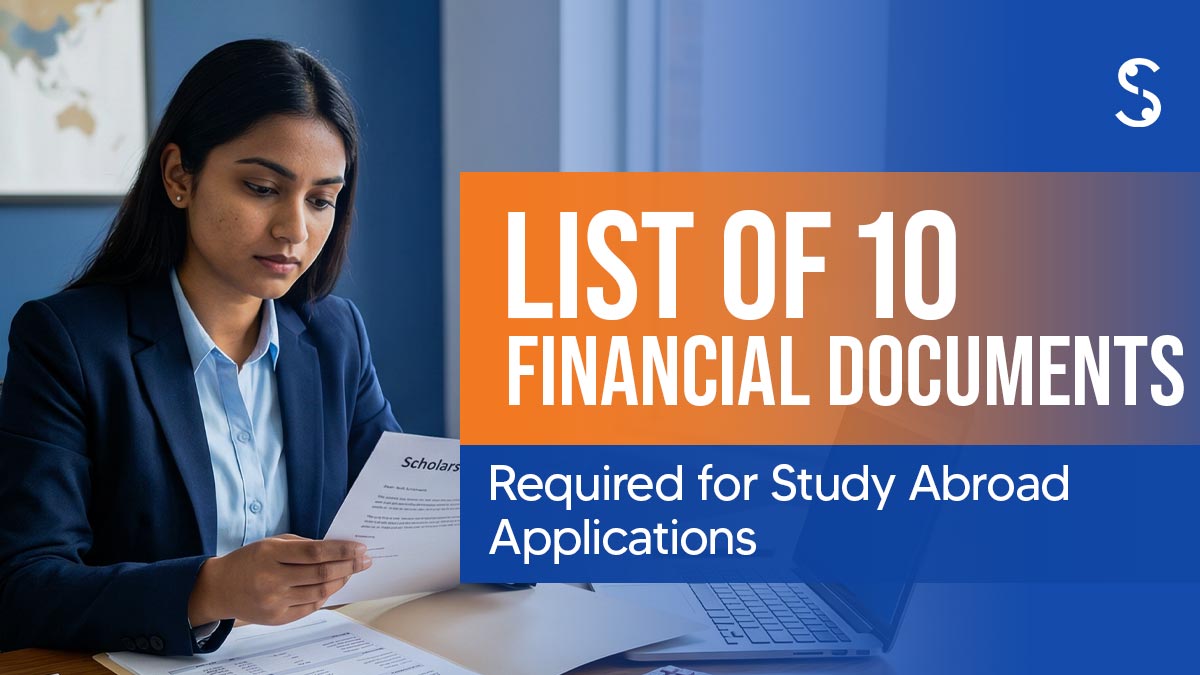
Study Masters in Germany without Gmat/GRE
Germany’s reputation as a leader in affordable, high-quality education extends to the realm of business degrees. For Indian students seeking an MBA, Germany offers a compelling alternative. Many top universities boast globally recognized programs at a fraction of the cost compared to other countries. The good news? The GMAT, often a hurdle for MBA hopefuls, isn’t always required!
This opens doors for Indian students to pursue a prestigious business education without the stress of standardized tests. Explore Shuraa Education’s blog for valuable insights on navigating the application process for these GMAT-optional MBA programs in Germany. Don’t miss this opportunity to Study for a Master’s in Germany without Gmat/GRE!
Study masters in Germany without GMAT
Ditch the GMAT, secure the MBA! Germany offers a compelling path for Indian students seeking a top-tier education. Many universities offer MBA programs that ditch the GMAT requirement, opening doors for a wider range of qualified students. This translates to not just a feasible route but also significant time and cost savings, eliminating the need for extra test prep.
| Institution Name | MBA Program Details | Course Tenure |
| Offenburg University of Applied Sciences | MBA International Business Consulting | 15 months |
| Witten/Herdecke University | MA in Management | 1-2 years |
| Reutlingen University | MBA in International Management | 1 year |
| HHL Leipzig Graduate School of Management, Leipzig University | Master of Science in Business Administration (MSBA) | 2 years |
| Technical University of Munich | Executive MBA in Innovation and Business Creation | 2 years |
| University of Stuttgart | Masters of Science in Business Administration | 1.5 years to 2 years |
| Ludwig Maximilian University Munich | Masters in Business Administration (MBA)
Masters of Business Research (MBR) |
2 years (Both) |
| Dresden International University | Master of Business Administration in Logistics Management | 3 semesters |
| Berlin School of Economics and Law | Full-Time MBA | 1 to 1.5 years |
| Accadis Hochschule Bad Homburg | Management and Leadership MBA
M.A. International Management |
1 year
2 years |
| Cologne Business School (CBS) | MBA in International Management | 4 semesters (Full Time) |
| The University of Kiel | Masters in Business Administration | 2 years |
| University of Tubingen | Masters of Science in International Business (MSIB) | 2 years |
Note: The universities mentioned above represent some of the premium options in Germany for pursuing an MBA without requiring GMAT scores. Before proceeding with your application, verifying specific admission criteria on their official websites is advisable.
How to Study Masters in Germany without GMAT?
How do I get admission for MBA in Germany without GMAT? Here’s a breakdown of the admission criteria:
- Two to three years of relevant work experience.
- Bachelor’s degree from an accredited university or educational institution.
- Proficiency in English is demonstrated through scores in tests such as TOEFL or IELTS.
- Minimum GPA of 3.0 or higher in the bachelor’s degree program.
- Submission of Letters of Recommendation (LOR).
- Crafting a compelling Statement of Purpose (SOP).
- Providing a comprehensive CV or Resume.
- Completing a Written Essay or Video submission as required.
MBA Specialisations in Germany
Germany’s MBA programs cater to diverse career ambitions. After a year of core courses building a strong business foundation, one can get into specialized tracks. These specializations equip one with industry-specific skills for a successful career path. Here’s a variety of the exciting fields one can focus on:
- Marketing
- Human Resources
- Finance
- Information Systems
- Consulting
- Entrepreneurship
- Operations Management
MBA Options in Germany without GMAT
Looking to advance your career but can’t commit to a full-time MBA? Germany offers excellent options for working professionals seeking an MBA through part-time and distance learning programs. Here’s a glimpse of what’s available:
- Balance Work and Education: Earn your MBA while you work with part-time programs like the Berlin School of Law and Economics’ MBA in Entrepreneurship or Beuth University’s MBA in Renewables.
- Distance Learning Convenience: Universities like Allensbach University and AKAD Bildungsgesellschaft offer distance learning MBAs, allowing you to study remotely with flexibility.
Cost-Conscious Options:
Germany boasts several universities with tuition-free education, including:
- University of Kiel
- University of Stuttgart
- Ludwig Maximilian University of Munich
- University of Tübingen
Important Note: While tuition is waived, expect nominal semester fees and additional costs. You’ll also need to factor in living expenses in Germany.
Tuition Costs at German Universities
Below is a compilation of prominent German universities providing MBA programs without GMAT requirements and their respective tuition fees.
| Name of the Institution | MBA Program Costs Per Year |
| Akademie Wurth Business School | €18,950 |
| TU Munich | €39,000 |
| University of Tubingen | €3,000 |
| Ludwig Maximilian University Munich | Free Tuition |
| Dresden International University | €11,980 |
| Accadis Hochschule Bad Homburg | €16,800 |
| Berlin School of Economics and Law | €19,800 |
| University of Kiel | Free Tuition |
| Cologne Business School | €600 |
| University of Stuttgart | €3,000 |
While pursuing your MBA, you must also account for living costs, books and study materials, and student visa expenses.
Admission Criteria for MBA without GMAT
To qualify for admission to MBA colleges in Germany without the GMAT, applicants typically need to meet the following requirements:
- Possession of a bachelor’s degree from a recognised university.
- A GPA of 3.0 or higher in the bachelor’s degree.
- Significant work experience, usually ranging from 2 to 3 years.
- GRE scores (optional, depending on the institution).
- Demonstrated proficiency in English through tests such as IELTS or TOEFL.
- Submission of a Statement of Purpose.
- Provision of Letters of Recommendation.
- Submission of a comprehensive Resume/CV.
Cost of Living in Germany
You’ll need to set up a German Blocked Account to show you have enough funds for your living expenses. This special type of bank account restricts withdrawals until you arrive in Germany. Then, you can only take out a set amount each month.
Why is it required? The German government uses the Blocked Account as a way to ensure international students have the financial resources to support themselves during their studies.
How much money do you need? The required amount is adjusted annually based on inflation to reflect the cost of living in Germany. As of May 23, 2024, you’ll need to deposit €11,208 (which translates to €934 per month) to cover your living expenses for the first year.
Scholarship Opportunities
Germany is a haven for ambitious students seeking a top-notch education without breaking the bank. Public universities in Germany typically charge low or no tuition fees, making them highly attractive. However, living expenses are still a factor. To ease the financial burden, Germany boasts a strong scholarship system. Universities offer merit-based awards recognizing exceptional academic achievement, while external organizations fund international students. By combining scholarships with affordable tuition fees, studying in Germany becomes a realistic and rewarding possibility.
German Student Visa
Germany welcomes international students with its renowned education system and the German Student Visa. This visa offers more than just residency for your studies. You’re empowered to gain valuable work experience alongside your academic pursuits. The visa allows part-time work for up to 20 hours weekly, translating to 120 full days or 240 half days a year.
This provides financial support and industry exposure. But the benefits extend beyond your studies. Upon graduation, you’ll be granted a generous 18-month post-study period to find employment in your field. If successful within this timeframe, you can convert your visa to a work permit, opening the door to a longer stay in Germany. After two years on a work visa, you’re even eligible to apply for permanent residency, paving the way for a long-term future in the country.
Career Opportunities for MBA Graduates
For many MBA graduates, the goal is to secure employment abroad. Investing significantly in an MBA degree often leads to seeking opportunities overseas. Regardless of economic conditions, there is always a demand for MBA graduates, offering a platform for individuals to showcase their business acumen.
- Finance: Working in corporate finance is highly sought after, with roles such as Financial Consultant, Financial Analyst, Finance Manager, or Finance Director. Salaries typically range from €55,000 to €78,000 in the early stages of one’s career.
- Finance and Economics: This field serves as the epicentre of financial activities and offers vast opportunities. Positions such as Portfolio Manager, Financial Consultant, and Director of Operations are expected, with starting salaries ranging from €51,000 to €60,000.
- Operations Management: The growing demand for professionals skilled in managing operational processes in manufacturing or service industries is evident. MBA programs equip individuals with new methodologies and skills to help companies adopt technology and develop strategies for maximising profits.
Mastering Your Future in Germany with Shuraa Education
We hope this information has addressed all your questions and cleared any doubts you may have about pursuing a Master’s degree in Germany without needing to take the GMAT/GRE. We’re dedicated to supporting every student’s dream of studying abroad, and we’ve aimed to provide wide details throughout this guide.
Do you have any further inquiries regarding Master’s programs in Germany or studying abroad in general? If so, don’t hesitate to reach out Shuraa Education counseling experts. They’re here to guide you through any challenges you may face on your academic journey.
Let's Plan Your Study Abroad Journey!
Please leave your details and we will contact you shortly!
Categories
Trending Post
Latest Post

How to Study Abroad for Free or Cheap in 2026?
Many students believe that studying abroad is only for people with a lot of money. The high fees, expensive lifestyle, and foreign currencies can make it feel scary and impossible. Because of this, many students drop the idea without even checking what options are actually available. But the truth is – Studying abroad is much more […]
Read More
UCD Dublin Rankings, Fees, Courses & Reviews for Indian
For Indian students planning to study in Dublin, University College Dublin (UCD) stands out as a top choice for quality education and global exposure. As Ireland’s most globally connected university, UCD attracts students from around the world through its strong focus on research, innovation, and real-world impact. The campus culture is spirited and inclusive, making […]
Read More
List of 10 Financial Documents Required for Study Abroad Applications
Planning to study abroad is exciting, but before you pack your bags, there’s one critical step you can’t skip: proving your financial readiness. Universities and immigration authorities want assurance that you can comfortably cover tuition fees, living expenses, and other costs throughout your studies. That’s where the financial documents required for study abroad come in. These documents form the backbone of your […]
Read More
